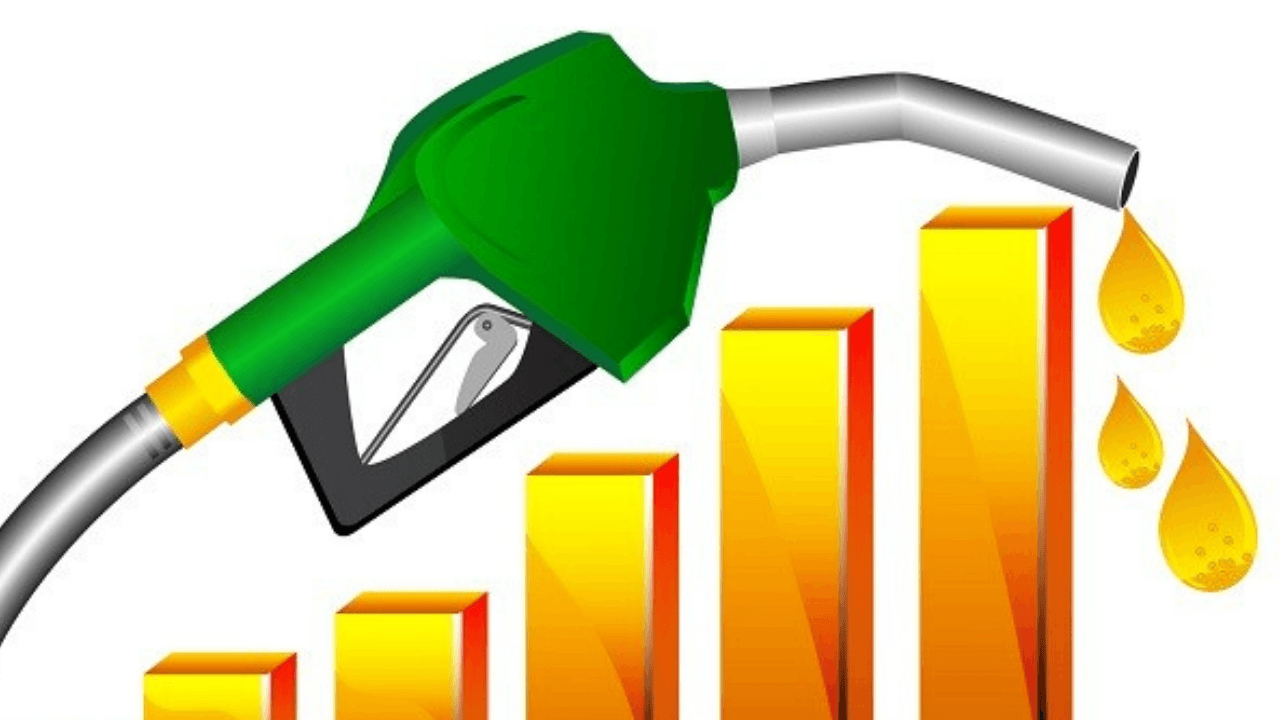16th Sep, 2024
High Fuel Prices and Interstate Travel in Nigeria

Fuel prices in Nigeria have been rising at an unprecedented rate, with prices now reaching as high as ₦1,400 per litre in some regions. This steep increase is having a profound impact on various sectors, but one of the most immediate effects is being felt in interstate travel. From skyrocketing transport fares to reduced availability of travel options, Nigerians are facing new challenges when it comes to moving between states.
In this article, we’ll explore the driving factors behind the surge in fuel prices, its direct consequences for interstate travel, and what this means for travelers, transport operators, and the economy as a whole.
The Rising Cost of Fuel: What’s Behind It?
The recent hike in fuel prices across Nigeria is the result of a complex interplay of both global and local factors, each contributing to the sharp rise in costs. These include:
Global Oil Market Fluctuations
One of the primary drivers of rising fuel prices in Nigeria is the volatility of global oil markets. The ongoing war in Ukraine has severely disrupted global oil supply chains, causing a surge in crude oil prices worldwide. Many oil-producing nations, including those in the Middle East and Russia, have been affected by geopolitical tensions and supply chain disruptions, which have contributed to a significant reduction in global oil output.
Nigeria, despite being a major oil producer, imports the majority of its refined petroleum products due to underperforming refineries. As a result, any spike in global oil prices is directly transferred to domestic fuel prices, leaving consumers at the mercy of international market fluctuations.
Currency Devaluation
The depreciation of the Nigerian Naira against the US dollar has further compounded the problem. Since crude oil is traded internationally in dollars, the weakening of the Naira makes the cost of importing refined petroleum products significantly more expensive. Over the past year, the Naira has lost value due to inflation, lower foreign reserves, and economic instability, pushing up the cost of everything tied to foreign exchange—including fuel.
For Nigerian importers, buying fuel in dollars while selling in Naira results in a price mismatch, which translates to higher fuel costs for the end consumer. This devaluation has been particularly harsh on an economy already burdened by inflation and low productivity in critical sectors.
Removal of Fuel Subsidies
Another critical factor contributing to the current fuel price hike is the Nigerian government’s decision to phase out fuel subsidies. For decades, the government heavily subsidized fuel prices, shielding citizens from the full impact of global oil price fluctuations. However, these subsidies came at a significant financial cost, with the government spending billions of Naira annually to keep fuel prices artificially low.
In an effort to reduce this financial burden, the government decided to remove these subsidies, exposing consumers to the full brunt of international oil prices. Without subsidies, the cost of fuel reflects real market conditions, leading to the current surge in prices at the pump. While this policy shift was intended to improve government finances, it has left many Nigerians grappling with much higher fuel costs and their ripple effects on the economy.
Inadequate Local Refining Capacity
Despite being one of the largest oil producers in Africa, Nigeria’s refining capacity remains severely underdeveloped. The country’s existing refineries, plagued by inefficiency, corruption, and poor maintenance, are operating far below capacity. This has forced Nigeria to rely on imported refined petroleum products, a costly and unsustainable approach for an oil-rich nation.
The lack of domestic refining capability leaves the country vulnerable to fluctuations in international oil prices and increases the cost of transporting refined fuel from global markets to local consumers. Efforts like the Dangote Refinery aim to address this issue, but the current infrastructure is still inadequate to meet Nigeria’s fuel demands, exacerbating the impact of global price hikes.
Distribution and Logistical Challenges
Beyond global market forces, local distribution inefficiencies have also contributed to the surge in fuel prices. Nigeria’s fuel distribution network is riddled with challenges, including smuggling, hoarding, and supply chain bottlenecks. These issues often result in artificial fuel shortages in certain regions, driving up prices due to a mismatch between supply and demand.
Smuggling fuel across borders to neighboring countries where fuel is sold at a higher price reduces the supply available for domestic consumption. Additionally, the practice of hoarding—where fuel is stored in anticipation of further price hikes—creates localized shortages that drive prices even higher in affected areas. These logistical and distribution challenges create unnecessary price inflation, especially in regions far from the main fuel depots.
The Impact on Interstate Travel
1. Higher Transport Fares
The most obvious effect of rising fuel prices is the increase in transport fares for interstate travel. Buses, taxis, and logistics companies are all facing higher operating costs, and these costs are being passed on to travelers. A trip that once cost ₦3,000 may now cost ₦6,000 or more, depending on the distance and region.
For many Nigerians, especially those on fixed incomes, these price hikes are making interstate travel a luxury rather than a necessity. This has the potential to restrict mobility, particularly for those who need to travel regularly for work, trade, or family reasons.
2. Reduced Travel Options
As fuel costs continue to climb, many transport operators are reducing the number of vehicles they send out for interstate journeys. In some cases, smaller operators have suspended services altogether, finding it financially unviable to run their buses or vehicles at current fuel prices. This has led to fewer travel options for passengers, who may find themselves waiting longer for available buses or being forced to pay premium prices for the remaining transport options.
3. Economic Ripple Effects
The impact of rising fuel prices goes beyond just the cost of transport. When the price of fuel goes up, the cost of moving goods between states also increases. This leads to higher prices for goods and services, particularly in regions that rely on imports from other states. Traders and small businesses, in particular, are feeling the squeeze as they struggle to cover higher logistics costs while keeping prices competitive.
The most vulnerable segments of the population—students, low-income earners, and small traders—are bearing the brunt of these changes. Students who travel to different states for education are now facing higher costs to get to their schools, while small-scale traders who depend on affordable transport to move goods between states are struggling to maintain profitability.
Additionally, the general population is seeing a shift in the cost of living, as interstate travel becomes less accessible and the price of everyday goods continues to rise due to increased transportation costs.
Can Dangote Refinery Save Us?
The Dangote Refinery holds the promise of easing the current fuel price crisis. By refining crude oil domestically, it can drastically reduce Nigeria’s reliance on imported fuel and protect the country from fluctuations in global oil markets. This should help stabilize fuel prices and, by extension, lower the cost of interstate transport over time.
Once fully operational, the refinery is expected to reduce the financial strain on both transport operators and everyday travelers. The local availability of fuel could lead to more affordable interstate travel options and ensure a more reliable supply of buses and other transport services.
While these benefits won’t be immediate, the refinery represents a long-term solution to Nigeria’s fuel crisis. Its success will depend on the ability of local refineries to meet demand and the government’s policies to ensure fair distribution and pricing.
The future of interstate travel in Nigeria remains uncertain as fuel prices continue to fluctuate. In the short term, travelers should expect higher fares and fewer transport options. This could also lead to an increase in demand for alternative travel methods, such as rail transport, which could provide a more cost-effective solution in the long run if properly developed.
In the meantime, it’s essential for travelers to plan ahead. Booking tickets early, exploring different transport options, and budgeting for increased travel costs are some ways to navigate the current situation. For those who rely on regular interstate travel, these price hikes may also prompt a reevaluation of travel habits, with some opting to reduce the frequency of trips.
The rising fuel prices in Nigeria are a clear indication of the challenges the country faces in managing its fuel supply and economic stability. While the immediate effects on interstate travel are evident, the long-term implications could be even more profound. To mitigate the impact on travelers and the economy, there is a need for government intervention, either through improved public transport infrastructure or policies that can stabilize fuel prices.
In the meantime, Nigerians are left to adapt to these new realities, finding ways to cope with the higher costs of moving between states. Whether through increased use of alternative transport options, carpooling, or simply traveling less frequently, the effects of this fuel price surge are being felt across the nation.

About Author
The Xcursions Team
Related Articles

Xcursions
Join 500+ adventure seekers who get exclusive travel deals, destination guides, and unforgettable tour updates sent straight to their inbox weekly.
